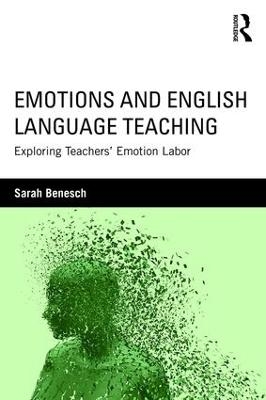
Emotions and English Language Teaching
Exploring Teachers’ Emotion Labor
Seiten
2017
Routledge (Verlag)
978-1-138-83214-5 (ISBN)
Routledge (Verlag)
978-1-138-83214-5 (ISBN)
Taking a critical approach, one that considers the role of power, and resistance to power, in teachers' affective lives, this volume, with its focus on "emotion labor," examines the relationship between English language teaching and emotions in postsecondary classrooms.
Taking a critical approach that considers the role of power, and resistance to power, in teachers’ affective lives, Sarah Benesch examines the relationship between English language teaching and emotions in postsecondary classrooms. The exploration takes into account implicit feeling rules that may drive institutional expectations of teacher performance and affect teachers’ responses to and decisions about pedagogical matters. Based on interviews with postsecondary English language teachers, the book analyzes ways in which they negotiate tension—theorized as emotion labor—between feeling rules and teachers’ professional training and/or experience, in particularly challenging areas of teaching: high-stakes literacy testing; responding to student writing; plagiarism; and attendance. Discussion of this rich interview data offers an expanded and nuanced understanding of English language teaching, one positing teachers’ emotion labor as a framework for theorizing emotions critically and as a tool of teacher agency and resistance.
Taking a critical approach that considers the role of power, and resistance to power, in teachers’ affective lives, Sarah Benesch examines the relationship between English language teaching and emotions in postsecondary classrooms. The exploration takes into account implicit feeling rules that may drive institutional expectations of teacher performance and affect teachers’ responses to and decisions about pedagogical matters. Based on interviews with postsecondary English language teachers, the book analyzes ways in which they negotiate tension—theorized as emotion labor—between feeling rules and teachers’ professional training and/or experience, in particularly challenging areas of teaching: high-stakes literacy testing; responding to student writing; plagiarism; and attendance. Discussion of this rich interview data offers an expanded and nuanced understanding of English language teaching, one positing teachers’ emotion labor as a framework for theorizing emotions critically and as a tool of teacher agency and resistance.
Sarah Benesch is Professor Emerita of English, College of Staten Island, The City University of New York, USA.
Preface
Acknowledgments
1 Introduction
2 Theorizing Emotions
3 Theorizing Emotion Labor
4 High-Stakes Literacy Testing and Emotion Labor
5 Responding to Student Writing and Emotion Labor
6 Plagiarism and Emotion Labor
7 Attendance and Emotion Labor
8 Conclusion and Pedagogical Implications
Index
| Erscheinungsdatum | 24.05.2016 |
|---|---|
| Verlagsort | London |
| Sprache | englisch |
| Maße | 152 x 229 mm |
| Gewicht | 294 g |
| Themenwelt | Schulbuch / Wörterbuch ► Wörterbuch / Fremdsprachen |
| Geisteswissenschaften ► Sprach- / Literaturwissenschaft ► Anglistik / Amerikanistik | |
| Geisteswissenschaften ► Sprach- / Literaturwissenschaft ► Literaturwissenschaft | |
| Geisteswissenschaften ► Sprach- / Literaturwissenschaft ► Sprachwissenschaft | |
| Sozialwissenschaften ► Pädagogik ► Schulpädagogik / Grundschule | |
| ISBN-10 | 1-138-83214-6 / 1138832146 |
| ISBN-13 | 978-1-138-83214-5 / 9781138832145 |
| Zustand | Neuware |
| Informationen gemäß Produktsicherheitsverordnung (GPSR) | |
| Haben Sie eine Frage zum Produkt? |
Mehr entdecken
aus dem Bereich
aus dem Bereich
Buch | Softcover (2024)
belleville (Verlag)
20,00 €


